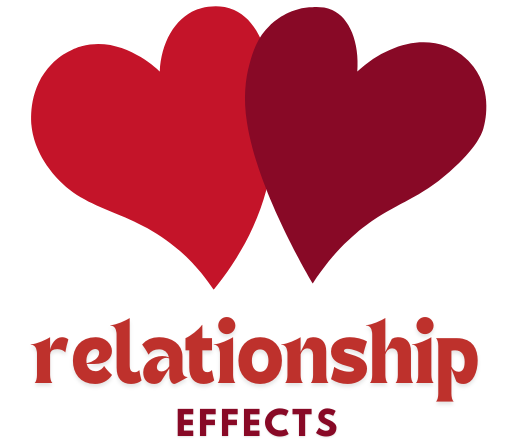Family relationships are often some of the most enduring and impactful connections in our lives. Our parents shape our earliest experiences and influence our values, behaviors, and perceptions. However, not all parental relationships are healthy. For many, the bond with their parents can be complicated and, at times, toxic.

Recognizing the Signs of a Toxic Relationship
Recognizing the signs of a toxic relationship with your parents can be challenging, but it is essential for your well-being. Here are some indicators and steps to consider if you suspect your relationship with your parents might be toxic.
1. Consistent Criticism and Judgment
One hallmark of a toxic relationship is persistent criticism. If your parents frequently belittle your choices, achievements, or appearance, it can erode your self-esteem. Constructive criticism is different; it aims to help you grow. In contrast, toxic criticism often comes from a place of control or insecurity.
Imagine sharing your excitement about a new job with your parents, only to be met with comments like, “Are you sure you’re cut out for that?” or “I hope you don’t mess this up like the last time.” Over time, these remarks can make you doubt your abilities and achievements.
2. Emotional Manipulation
Emotional manipulation can be subtle and insidious. Parents might use guilt, fear, or obligation to control your actions and decisions. This behavior can make you feel responsible for their happiness or well-being, which is unfair and unhealthy.
Here’s a relatable scenario: You decide to spend the holidays with your partner’s family, and your parents respond, “I guess we’ll just be lonely and miserable without you. We were really looking forward to having you here.” This kind of response is designed to make you feel guilty and cause you to change your plans, disregarding your own needs and desires.
3. Lack of Boundaries
Healthy relationships, including those with parents, require clear and respected boundaries. Toxic parents often disregard these boundaries, invading your privacy, making decisions for you, or expecting you to prioritize their needs over your own.
For example, your parents insist on having a say in your financial decisions, even as an adult. They might demand access to your bank accounts or expect you to justify every purchase, making you feel like you have no control over your own life.
4. Passive-Aggressive Behavior
Passive-aggressive behavior, such as silent treatment, backhanded compliments, or indirect criticism, is a common trait in toxic relationships. This form of communication is confusing and undermines trust and openness.
Here’s another relatable scenario: You miss a family event due to a work commitment, and instead of expressing disappointment directly, your parent says, “Oh, I see your job is more important than family.” This comment is designed to make you feel guilty without addressing the real issue.
5. Conditional Love
In healthy relationships, love is unconditional. Toxic parents, however, may make you feel like their love and approval are contingent on meeting certain expectations or conditions.
Imagine your parents only praised you when you achieved something they valued, like getting a promotion or following a career path they approved of, yet when you pursue something different, their support and affection seem to vanish. This is a classic example of toxic behavior.
6. Gaslighting
Gaslighting is a form of psychological manipulation where the manipulator makes you question your reality, memories, or perceptions. Toxic parents may use gaslighting to maintain control and avoid taking responsibility for their actions.
Just imagine: You confront your parent about a hurtful comment they made, and they respond with, “You’re too sensitive. I never said that. You’re imagining things.” This response makes you doubt your feelings and memory.
Recognizing and Addressing the Toxicity
If you recognize these behaviors in your relationship with your parents, it is important to take steps to protect your mental and emotional well-being.
1. Set Boundaries
Clearly define what behaviors are unacceptable and communicate these boundaries to your parents. Be firm and consistent in enforcing them.
Example: If your parent frequently criticizes your life choices, you might say, “I value your opinion, but I need you to respect my decisions without constant criticism.”
2. Seek Support
Talking to a therapist, counselor, or support group can provide you with tools and strategies to navigate a toxic parental relationship. Professional support can also help you process your emotions and develop healthy coping mechanisms.
3. Limit Contact
In some cases, it may be necessary to limit or even cut off contact with toxic parents to protect your mental health. This decision is deeply personal and can be challenging, but your well-being should be the priority.
You might decide to limit interactions to phone calls or emails rather than in-person visits if those tend to be more triggering.
4. Focus on Self-Care
Engage in activities that promote your well-being and happiness. Surround yourself with supportive friends and family members who respect and value you.
Spend time with friends who uplift you, engage in hobbies that bring you joy, and practice mindfulness or meditation to manage stress.
Final Words
Recognizing a toxic relationship with your parents is the first step towards healing and reclaiming your mental and emotional well-being. While it can be painful to acknowledge that the people who are supposed to love and support you unconditionally are causing harm, it is crucial to prioritize your health and happiness. By setting boundaries, seeking support, and focusing on self-care, you can navigate the complexities of a toxic parental relationship and move towards a healthier, more fulfilling life. Remember, you deserve to be treated with respect and love, and it is okay to demand that for yourself.
Ally is editor at Relationship Effects and a keen writer on the topics of love and relationships. When she's not writing about the highs and lows of being in love, you're likely to find her catching up on the latest season of Bridgerton (again), reading, or hanging with her two ragdoll cats.
